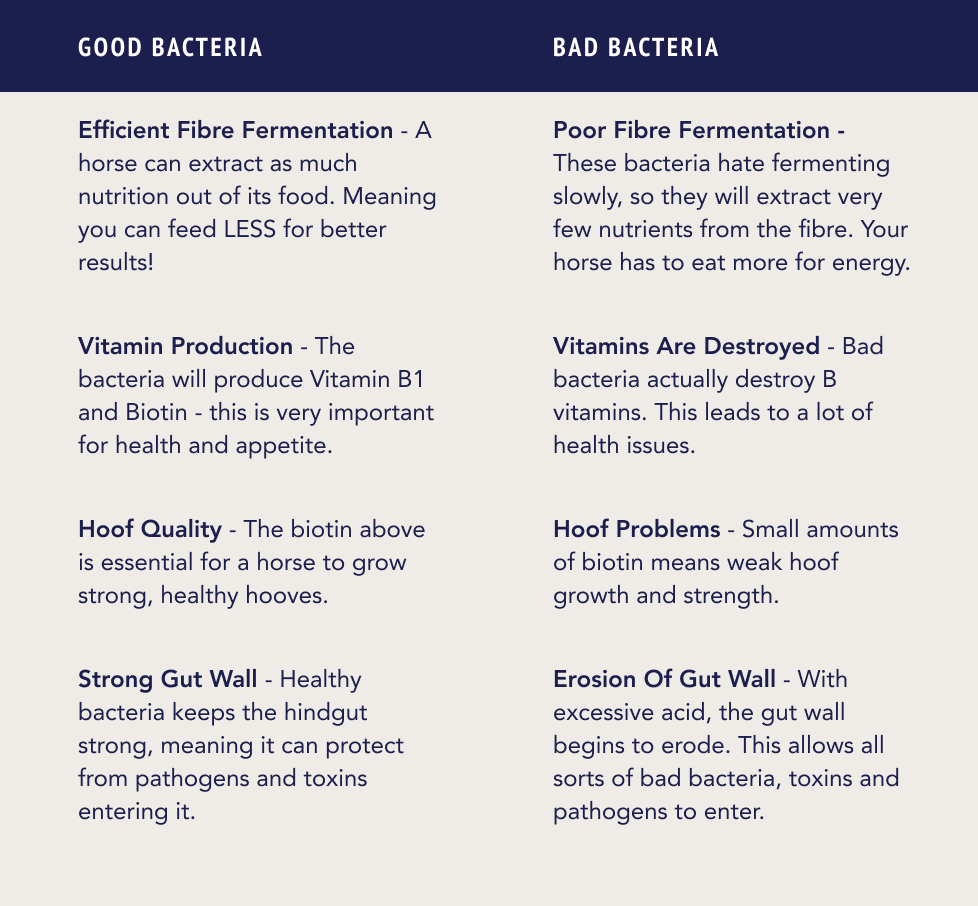
A JOURNEY OF HEALTH - With Dr Nerida McGilchrist - B Rur. Sc (Hon1) PhD RAnNutr
 As a horse owner, you may see problems like anxious behaviour, girthiness, laminitis, poor performance, loose manure and weight challenges and accept them as ‘normal’ for your horses. But are they? And if they aren’t, what is causing them? Fact is, these problems, for most horses, are not normal! And it is only now that we are really starting to understand the role of poor gut health, management and nutrition is playing as a cause of all these issues.
As a horse owner, you may see problems like anxious behaviour, girthiness, laminitis, poor performance, loose manure and weight challenges and accept them as ‘normal’ for your horses. But are they? And if they aren’t, what is causing them? Fact is, these problems, for most horses, are not normal! And it is only now that we are really starting to understand the role of poor gut health, management and nutrition is playing as a cause of all these issues.
More and more science is coming out that in fact, the way we currently feed and manage our horses might actually be harming their health.
This, in turn, affects our horse's behaviour and the enjoyment we get out of being with them.
So - what is wrong with current feeding methods?
In simple terms, the current feeding and management methods are not friendly to our horses gut.
These include:
- Not feeding enough fibre;
- Feeding too much indigestible starch;
- Frequently changing feeds too quickly;
- Feeding large infrequent feeds
And the Equine Nutrition world is really starting to understand that poor gut health is playing a major cause in all of the common health issues we are increasingly experiencing with our horses.
And that's not all.
We have also underestimated the negative impact of some of our management of horses.
Practices such as large stabling and travel can all influence a horse's gut health and ultimately their health and performance.
But What Is Gut Health?
The term ‘gut health’ simply refers to how well your horse’s gut is working in the following areas:
- The digestion and absorption of feed
- Providing a barrier that will protect your horse from disease-causing pathogens, bacteria and toxins; and
- Housing the trillions of bacteria who play important roles in digestion, immune function and behaviour
What Do We Mean By "Gut"?
Your horse’s gut consists of the foregut (oesophagus, stomach and small intestine) and the hindgut (cecum, large colon and small colon). When the digestive tract is working well, we say a horse has a healthy gut.

What Problems Does Poor Gut Health Cause?
Stress, incorrect diet or poor feeding management can cause problems like:
- Gastric ulcers - open wounds in your horse’s stomach
- Hindgut acidosis – too much acid and a low pH in the hindgut
- Imbalance of bacteria – not enough fibre loving ‘good’ bacteria
- Weight loss – without the fibre fermenting bacteria your horse can’t digest his pasture or hay and will start to lose weight
- Behavioural changes – B-vitamin deficiency and possible hormone balance changes can cause hyperactive or anxious behaviour
- Leaky gut – the gut wall gets damaged and allows bacteria, pathogens and toxins into your horse’s body
However, a lot of these problems can be silent. A lot of them are actually very subtle, even when the issues are severe.
Why is this a big deal?
Well, the gut is the ‘engine of the horse’.
If you want your horse to ‘work well’, you have to look after his gut!
What Are The Signs & Symptoms Of Poor Gut Health?
- Picky eating or loss of appetite
- Excessive girthiness
- Uncharacteristically anxious or excitable behaviour or changes in behaviour like cribbing
- Weight loss or can’t gain weight
- Recurrent, mild colic
- Manure that smells acidic (vomit like) or is softer than normal
- Scouring
- Free fecal water (with water-like manure running out of the anus before, during or after your horse poos)
- Dull coat and/or poor hoof quality
- Difficulty working to the right
So, stop right here and think - has your horse ever experienced any of the above?
Part of the problem with recognising gut health as a ‘problem’ for your horse is that symptoms of poor gut health can be very subtle, even when issues are severe.
Plus, each horse may show different signs for the same issue.
If you answered yes, your horse probably has an unhealthy gut!
“An average-sized horse’s hindgut contains more than 100 TRILLION bacteria! And a horse’s gut health revolves around keeping these bacteria healthy! Healthy Gut Bacteria = Healthy Horse!”
A Quick Science Lesson - How Our Horses Digest The Feed We Provide Them
The 100 TRILLION bacteria that live in your horse's hindgut have the pleasant role of breaking down your horse's food every day into energy production.
The quality of this breakdown of food determines everything about how your horse functions!
In simple terms, if you have ‘good bacteria’ in the hindgut, you will have a healthy horse, and vice versa.
The balance of the good and bad bacteria can impact on your horse's overall health, behaviour, performance and appearance.
We are learning more and more about the need to keep the balance of the good and bad bacteria in favour of the good guys...
What’s The Difference Between ‘Good’ And ‘Bad’ Bacteria?

In addition, here are more common health issues from too much bad bacteria:
Laminitis – something that leaks from the gut during hindgut acidosis (researchers still don’t know what) is well known to cause severe laminitis.
Colic – because of the rapid rate at which these bacteria ferment starch and sugars they also create a lot of gas which can lead to pain resulting in colic.
Behavioural Changes – horses with disrupted hindgut function tend to show changes in behaviour including hyperactivity and stereotypical behaviours like crib-biting and chewing timber.
OK - I Now Know I Need More Fibre-Fermenting Good Bacteria, So What Should I STOP Doing?
Read this list carefully! These are some of the main culprits of poor gut health:
A Low Forage Diet – This will result in not enough Good Bacteria.
Feeding Uncooked Grains - These have lots of starch in them… which Bad Bacteria love! This will result in an acid build-up, which you now know causes acidosis, gut wall damage and laminitis.
Too Much Competition - Long hours of transport, long hours without feed and stress all combine to create the perfect storm for gastric ulcers and may negatively affect hindgut bacteria.
Sudden Changes In Diet – Sudden changes don’t let your horse’s gut have time to adapt and can cause colic and shifts in hindgut pH and bacterial populations.
Big Meals – When big meals are fed, starch travels too quickly into the hindgut, which the Bad Bacteria love!
Too Much Anti-Inflammatory Medication - Non-steroidal anti-inflammatory drugs like Bute are well recognised for increasing the risk of gastric ulcers in the lower section of your horse’s stomach.
Overuse Of Antibiotics – Oral antibiotics will wipe out many of your horse’s good bacteria. Look at your horse’s management and routine. If your horse experiences one or more of these listed above then your horse may have poor gut health.
And What Should I START Doing?
Thankfully, fixing up your horses gut health is actually quite simple. Here are three things to implement immediately.
Feed Plenty Of Forage - Horses should have 1.5 – 2 % of their body weight a day in forage (grass, hay and chaff).
For a 500 kg horse that’s 7.5 to 10 kg/day.
Forage feeds the good bacteria, fills the stomach up so its acid can’t splash around and burn the top section of the stomach.
This is very important to protect from ulcers.
Take Care With Grain - Whilst grain can provide calories, grains also contain a lot of starch - which we know the Bad Bacteria love!
If you feed grains, make sure (with the exception of oats), that they are cooked (extruded, boiled, micronized, steam flaked) to make the starch more digestible AND feed grains and grain-based feeds in small meals.
No more than 1 kg/feed for a 500 kg horse. Oats can be safely fed whole or cracked, but still feed them in small meals!
Feed A Balanced Diet - Your horse’s gut needs a lot of different nutrients to repair and maintain itself to do its job well.
Make sure the diet you are feeding is meeting all requirements for protein, minerals and vitamins.
To Give Your Horse Extra Help
Sometimes our horse’s need extra help. And that is why we developed Digestive EQ.
Digestive EQ, with digestive enzymes, essential amino acids, mycotoxin binders, acid buffers and a yeast prebiotic is designed to give your horse’s gut a helping hand to either recover and repair from damage done in the past, to maintain normal gut function into the future or to help your horse through a particularly stressful period.














